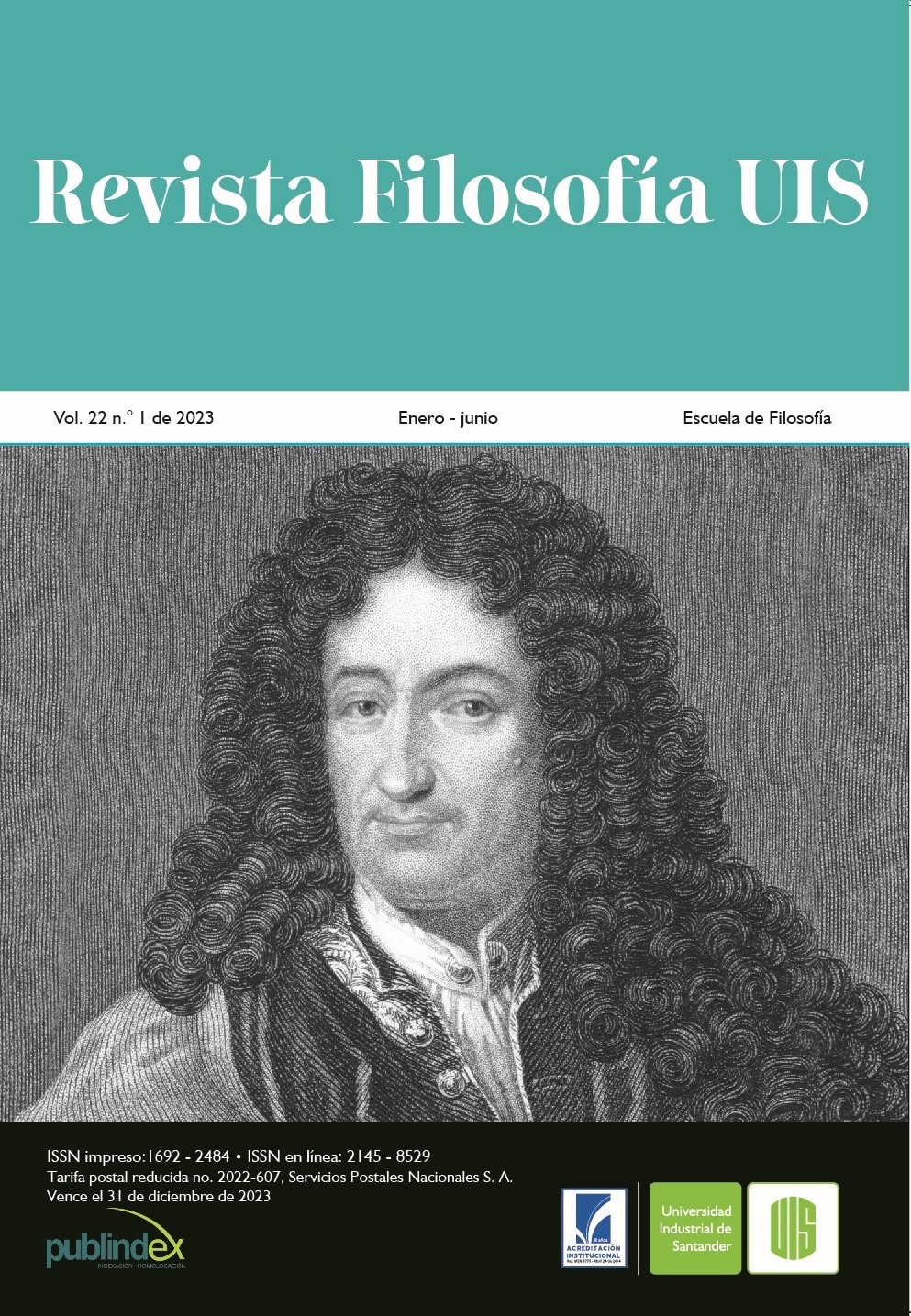Can We Lie to the Murderer in Front of the Door? An Analysis of Kantian Philosophy on Lying
Published 2023-01-02
Keywords
- Kant,
- moral rigorism,
- Truthfulness,
- necessary lie,
- duty to oneself
How to Cite
Copyright (c) 2023 Revista Filosofía UIS

This work is licensed under a Creative Commons Attribution 4.0 International License.
Abstract
Kantian moral philosophy has been criticized for its commitment to moral rigorism. This criticism is based on the Kantian position on lying, specifically, it derives from Kant’s assertion that it is a duty to be truthful even to the murderer who comes home asking for the whereabouts of the refugee friend. This article is explanatory in spirit and aims to reconstruct and examine Kant’s position on lying to determine whether the rigorist critic is well founded. I examine three sources: Lectures on Ethics (§1.1), “On an Alleged Right to Lie for Philanthropy” (§1.2) and Metaphysics of Morals (§1.3). From this comparative examination I conclude that there is no textual evidence to prove that Kant categorically defends the duty to be truthful in the case of the murderer at the door; so that the accusation of rigorism against Kantian moral philosophy, at least as far as this case is concerned, does not seem to be well founded.
Downloads
References
- Benton, R. J. (1982). Political Expediency and Lying: Kant vs Benjamin Constant. Journal of the History of Ideas, 43(1), 135-144. https://doi.org/10.2307/2709165
- Cholbi, M. (2009). The Murderer at the Door: What Kant Should Have Said. Philosophy and Phenomenological Research, 79(1), 17-46.
- Cholbi, M. (2013). The Constitutive Approach to Kantian Rigorism. Ethical Theory and Moral Practice, 16(3), 439-448.
- González, L. (2020). Rigorismo e integridad: un ensayo sobre la concepción del yo dividido en la filosofía práctica kantiana. Universidad Nacional de Colombia. https://repositorio.unal.edu.co/handle/unal/78995
- Hobbes, T. (1996). Leviatán (C. Mellizo, Ed.). Alianza Editorial.
- Kant, I. (1986a). [SDMF] “Sobre un supuesto derecho de mentir por filantropía”. Teoría y práctica (R. Rodríguez Aramayo, trad.). Tecnos.
- Kant, I. (1986b). Teoría y práctica (R. Rodríguez Aramayo, Ed.). Tecnos.
- Kant, I. (1989). [MC] Metafísica de las costumbres (J. Conill Sancho & A. Cortina Orts, trads.). Tecnos.
- Kant, I. (1991). Antropología en sentido pragmático. Alianza Editorial.
- Kant, I. (2002). [F] Fundamentación para una metafísica de las costumbres (R. Rodríguez Aramayo, trad.). Alianza Editorial.
- Kant, I. (2012). [LE] Lecciones de ética (R. Rodríguez Aramayo & C. Roldán Panadero, trads.). Austral.
- Kant, I. (2016). [R] La religión dentro de los límites de la mera razón (F. Martínez Marzoa, trad.). Alianza Editorial.
- Korsgaard, C. (2000). The right to lie: Kant on dealing with evil. In Creating the Kingdom of Ends (pp. 133-158). Cambridge University Press. https://doi.org/10.1017/CBO9781139174503.006
- Korsgaard, C. (2011). La creación del reino de los fines. Universidad Autónoma de México.
- McCarty, R. (2012). The Right to Lie: Kantian Ethics and the Inquiring Murderer. American Philosophical Quarterly, 49(4), 331-343.
- Rodríguez Aramayo, R. (2012). Introducción. La cara oculta del formalismo ético. En Lecciones de ética (pp.7-34). Austral.
- Schapiro, T. (2006). Kantian Rigorism and Mitigating Circumstances. Ethics, 117(1), 32-57. https://doi.org/10.1086/508036

